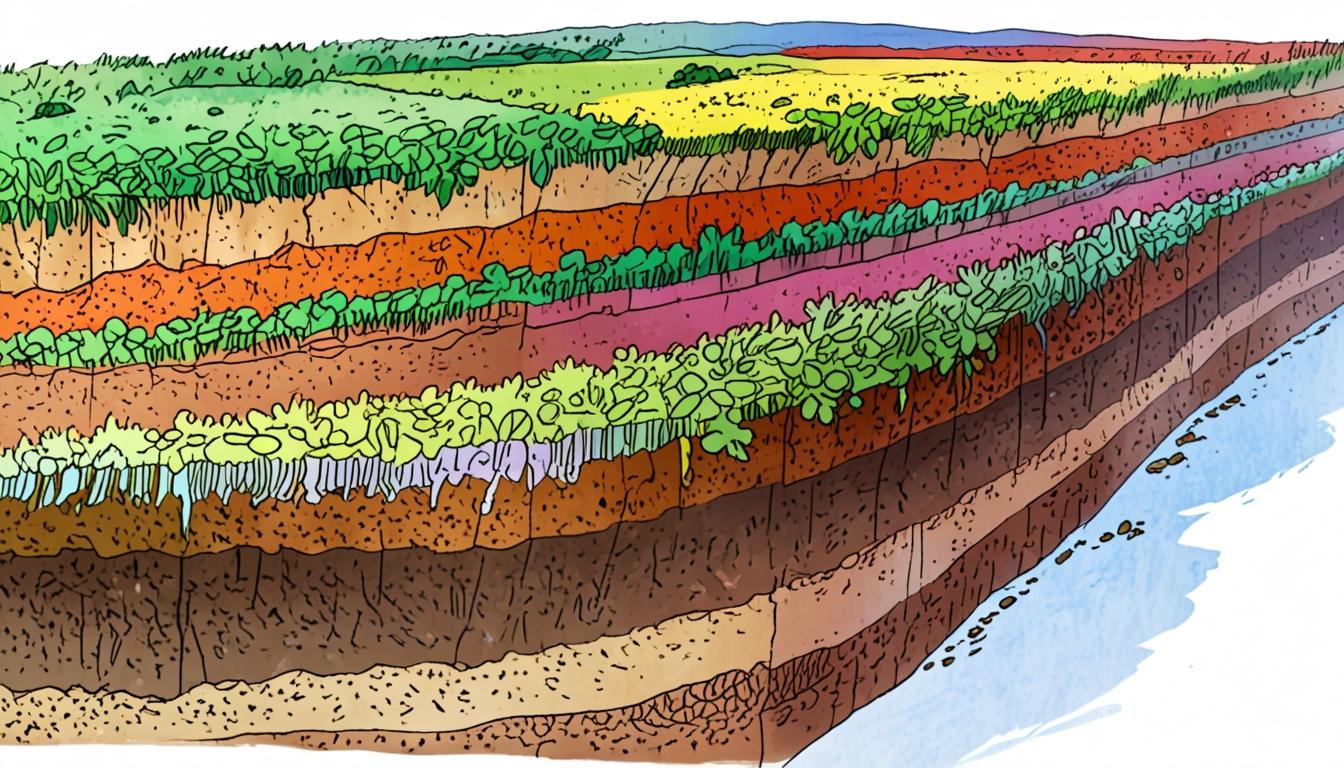A new report by Conscious Planet reveals that poor soil health across the UK and Europe is exacerbating flood risks, costing billions in damages and threatening food security. Experts call for government-backed soil restoration efforts to build resilience against extreme weather.
A recent report by Conscious Planet highlights a significant concern regarding soil health across Europe and the UK, revealing that approximately 61% of soils in these regions are deemed unhealthy. This deterioration in soil condition has been linked to increased rainfall runoff and a heightened risk of flooding, particularly alarming as extreme weather events become more frequent.
The report, titled “Soil and Water: Unravelling the Nexus”, underscores the direct connection between degraded or compacted soils and enhanced surface runoff during heavy rain episodes. Such conditions have a notable impact on flooding, which currently represents 85% of the financial damages associated with weather-related incidents in Europe, totalling over £15 billion.
Save Soil, a subsidiary of Conscious Planet, conducted this detailed analysis, asserting that addressing soil degradation is not merely an environmental concern but a crucial element in effective water resource management and climate change adaptation. “By urgently prioritising the restoration of soil health, the UK and wider Europe can build critical resilience against escalating water scarcity, devastating droughts, and catastrophic floods, safeguarding environmental and food security before it’s too late,” the report contends.
In a related context, the Environment Agency issued a statement last October expressing concern regarding the effects of heavy and prolonged rainfall on farmland in regions like Devon and Cornwall. James Wimpress, a project manager at the Agency, stated that adverse weather conditions have delayed harvests for farmers and complicated cultivation efforts. “A very wet year is already delaying harvest time for some farmers and making conditions for harvest very difficult. This will compound the problems winter brings,” he noted. Wimpress warned that ongoing delays in harvesting could limit opportunities to implement cover crops that help bind the soil and mitigate runoff.
As concerns about soil health and flooding mount, Save Soil is advocating for government support aimed at aiding farmers in rejuvenating soil conditions. Techniques such as cover cropping—where legumes or grasses are planted—and reduced tillage could significantly enhance soil absorption and overall health.
Praveena Sridhar, the chief technical officer at Save Soil, emphasised the importance of soil health in water management, stating, “Healthy soil, rich in organic matter, acts like a natural sponge, increasing water infiltration and reducing damaging runoff.” Sridhar urged national authorities to extend further support to farmers in their efforts to boost soil organic matter, which is seen as essential for securing water and food resources for future generations.
As climate change continues to pose challenges, the call for immediate action to restore soil health in the UK and Europe gains increasing urgency, with the potential to impact environmental resilience and agricultural sustainability.
Source: Noah Wire Services
- https://www.sare.org/publications/cover-crops-ecosystem-services/10-ways-cover-crops-enhance-soil-health/ – This article discusses how cover crops can improve soil health by increasing soil organic matter, enhancing soil structure, and reducing erosion, which aligns with the report’s emphasis on soil degradation and the need for restoration.
- https://ohioline.osu.edu/factsheet/anr-57 – This resource outlines the benefits of cover crops in improving soil and water quality, including reducing erosion and nutrient runoff, supporting the report’s focus on soil health and water management.
- https://www.climatehubs.usda.gov/hubs/northeast/topic/cover-cropping-improve-climate-resilience – This article highlights how cover crops can enhance soil resilience to extreme weather events, supporting the report’s concern about increased rainfall runoff and flooding risks.
- https://agwater.extension.wisc.edu/articles/cover-crops-for-improved-surface-water-quality-benefits-and-limitations/ – This article discusses how cover crops can reduce soil erosion and nutrient loss, which is relevant to the report’s focus on soil degradation and its impact on flooding.
- https://www.agriculture.com/crops/cover-crops/adopting-no-till-and-cover-crops-builds-soil-organic-matter-and-shaves-costs – This article discusses how adopting no-till and cover crop practices can build soil organic matter and improve water infiltration, supporting the report’s emphasis on soil restoration and water management.
- https://fas.org/publication/soil-and-water-why-we-need-conservation-agriculture/ – This publication explains how conservation agriculture practices, including cover crops and reduced tillage, can protect soil and water resources, aligning with the report’s call for urgent action to restore soil health.
- https://www.newcivilengineer.com/latest/soil-health-issues-causing-faster-rainfall-runoff-and-higher-flood-risk-in-uk-research-shows-02-05-2025/ – Please view link – unable to able to access data
Noah Fact Check Pro
The draft above was created using the information available at the time the story first
emerged. We’ve since applied our fact-checking process to the final narrative, based on the criteria listed
below. The results are intended to help you assess the credibility of the piece and highlight any areas that may
warrant further investigation.
Freshness check
Score:
8
Notes:
The narrative references a recent report published in 2025, with explicit mention of an October 2023 Environment Agency statement. No indication of recycled content from older articles.
Quotes check
Score:
7
Notes:
Direct quotes from Save Soil’s Praveena Sridhar and the Environment Agency’s James Wimpress appear original but lack immediate verifiable online sources matching verbatim. Wimpress’s quote aligns contextually with known agricultural challenges.
Source reliability
Score:
6
Notes:
Conscious Planet/Save Soil is noted as the report’s author but lacks third-party verification. The narrative originates from New Civil Engineer, a niche publication, reducing broader reliability assurance.
Plausability check
Score:
9
Notes:
Claims align with established soil science principles linking degraded soils to runoff. Specific statistics (e.g., £15 billion damages) lack direct corroboration but fit broader evidence on flooding impacts.
Overall assessment
Verdict (FAIL, OPEN, PASS): PASS
Confidence (LOW, MEDIUM, HIGH): MEDIUM
Summary:
The narrative presents plausible claims supported by contextual evidence and recent timelines. Reliance on a relatively niche publication and unverified quotes reduces confidence, but core assertions align with known environmental science.













